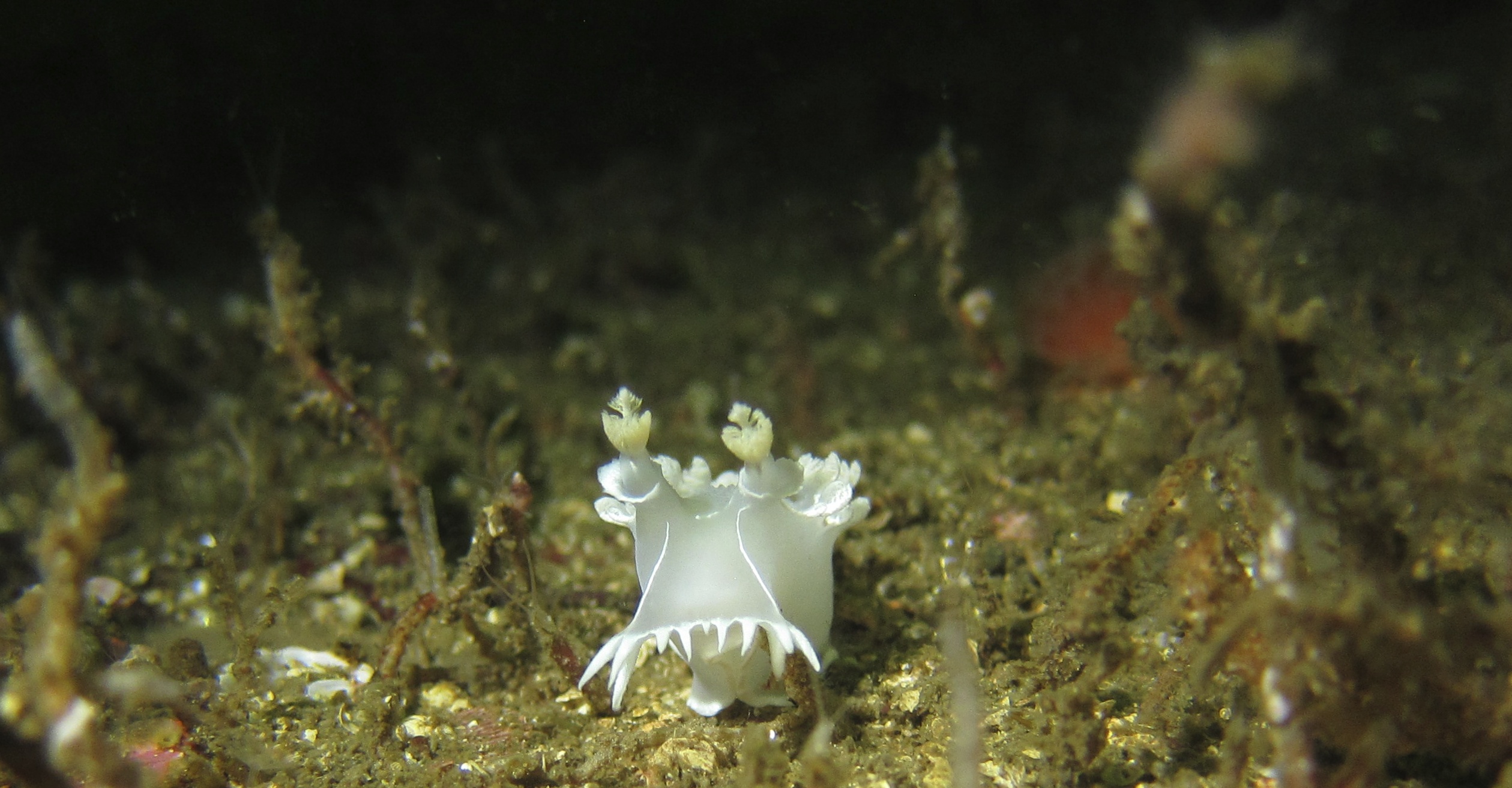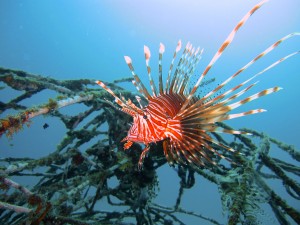The exact time and means of how lionfish (native to the Indo-Pacific) came to be in the Caribbean are still uncertain and may never be solved. However, lionfish certainly are there now, and they have left scientists, divers, fishers, policy makers and anyone else who enjoys and cares about the reefs’ health scrambling to find solutions.
The reasons for all the worry are that lionfish eat anything. Well, anything they can fit in their mouths, and they’ve got big mouths. A study, reported by Time, found 41 species of fish in their bellies. They also reproduce at a prodigious rate. Females can produce up to 2 million eggs per year, states the article. This means that lionfish are depleting native fish stocks, which are important to fisheries, and the stability of reef ecosystems.
One controversial solution to the lionfish population explosion is to feed them to sharks. The hope is these predators will start identifying lionfish as prey, and a new equilibrium will establish on the reefs. This is controversial for a few reasons. Firstly, a recent study found no evidence that large predators were reducing lionfish numbers. After sampling 71 reefs, researchers were unable to find any relationship between the number of native predators and a reduction in lionfish populations. It’s worth pointing out though, that this study looked solely at groupers as predators. Secondly, divers that have been spearfishing lionfish as part of an eradication program have reported more aggressive behaviour towards them from the reef’s larger predators. One incident reported a reef shark accidentally biting a diver’s hand while trying to eat a speared lionfish. Another article cites a diver being bitten by a moray eel, which was also going for a speared lionfish. Both incidents occurred in areas where divers had been seen trying to feed lionfish to predators.

A reef shark feeding on a healthy lionfish. Photo: Antonio Busiello.
However, there have been some reported success stories of sharks feeding on lionfish without the prey being previously injured by humans. Antonio Busiello photographed such an event and published the story with National Geographic.
Samuel Gruber, a shark researcher at Bimini Shark Lab with 40 years of experience under his belt, mentions in the Time article that he believes that sharks will be able to be trained relatively quickly to hunt lionfish. He states that sharks learn about 10 times faster than cats. Recently, an article from Mailonline reported that a cuban marine biologist has been feeding lionfish to sharks as part of a 3 year experiment, with some success. Though lionfish numbers are still high on the reef, there have been reports of native predators eating lionfish of their own accord.
Teaching sharks to eat lionfish may come with risks, but if it does help reduce their numbers on Caribbean reefs, shouldn’t we try? Native predators may figure this out in time, as they did in the Indo-Pacific, but by then it may be too late.

